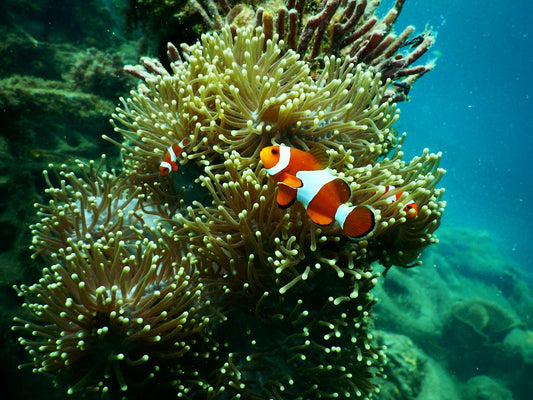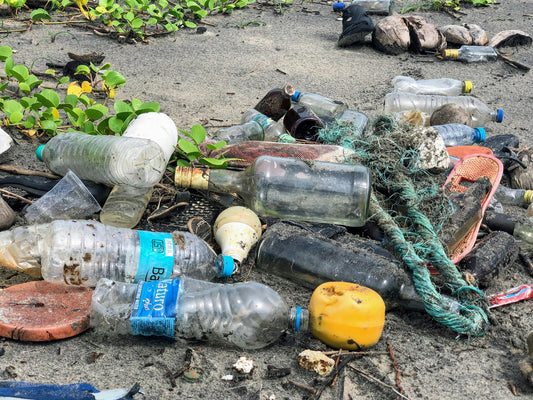Share
A Teen and a Thousand Ants Walk Into a Bar:
You've probably been there. A teenager with too much time on their hands gets into some harmless trouble, say, a bit of graffiti or a prank gone wrong. However, this tale of teen mischief is on a completely different level. It's got undercover operations, international smuggling, and a small horde of ants with prices on their heads. We will introduce you today to the wild world of illicit international insect trafficking, courtesy of two 19-year-old Belgian lads who plead guilty to stuffing 5,000 ants into test tubes. Leave your conventional understanding of wildlife piracy at the door, this story strays far from ivory tusks and bird feathers.
Size Doesn't Matter, It's How You Use Your Exoskeleton:
Our would-be insect entrepreneurs, Lornoy David and Seppe Lodewijckx, were nabbed by the Kenya Wildlife Service (KWS) in their guesthouse with 5,000 ants- each barely the size of a fingernail. The teens had prepared the ants for their globe-trotting adventure in test tubes and syringes packed with cotton wool, apparently planning to sell the critters on the booming exotic pet market in Europe and Asia. This episode shines a lantern on a new trend in wildlife trafficking, a shift from the usual hulking, majestic beasts to creatures on the more minuscule end of the scale.
Take the Ants Out of the Pants; Put Them in a Tank:
The stolen insect species in question is Messor cephalotes, a large red harvester ant native to East Africa. Thanks to their complex colony building skills and unique behaviors, these ants are a hit in the exotic pet scene, fetching about 99 pounds per colony. Ant-keeping and collecting are burgeoning hobbies that offer sanctuary for tech-fatigued souls seeking a more "grounded" pursuit. The thriving ant market also hosts a growing number of ant-keeping shows, where enthusiasts rub elbows and compare fauna archives.
The Ant-sy Social Distortion:
But before we all rush off to set up our own formicariums (that’s ant tanks for those of us who haven’t watched every episode of "Ants Canada"), let’s pause for the potential downside. First, smuggling ants could tip them into invasive species status, with severe environmental and economic fallout. Secondly, depriving local ecosystems of these tiny giants could have dramatic impacts on the ecology. After all, a healthy ecosystem isn't just about the big creatures; it’s about 'Ant'ony and his friends quietly working below the surface just as much as it’s about Simba and his pride up above. So, while our two Belgian boys might only receive a light slap on the wrist, let's remember that the repercussions of their little escapade could ripple out much further.
You've probably been there. A teenager with too much time on their hands gets into some harmless trouble, say, a bit of graffiti or a prank gone wrong. However, this tale of teen mischief is on a completely different level. It's got undercover operations, international smuggling, and a small horde of ants with prices on their heads. We will introduce you today to the wild world of illicit international insect trafficking, courtesy of two 19-year-old Belgian lads who plead guilty to stuffing 5,000 ants into test tubes. Leave your conventional understanding of wildlife piracy at the door, this story strays far from ivory tusks and bird feathers.
Size Doesn't Matter, It's How You Use Your Exoskeleton:
Our would-be insect entrepreneurs, Lornoy David and Seppe Lodewijckx, were nabbed by the Kenya Wildlife Service (KWS) in their guesthouse with 5,000 ants- each barely the size of a fingernail. The teens had prepared the ants for their globe-trotting adventure in test tubes and syringes packed with cotton wool, apparently planning to sell the critters on the booming exotic pet market in Europe and Asia. This episode shines a lantern on a new trend in wildlife trafficking, a shift from the usual hulking, majestic beasts to creatures on the more minuscule end of the scale.
Take the Ants Out of the Pants; Put Them in a Tank:
The stolen insect species in question is Messor cephalotes, a large red harvester ant native to East Africa. Thanks to their complex colony building skills and unique behaviors, these ants are a hit in the exotic pet scene, fetching about 99 pounds per colony. Ant-keeping and collecting are burgeoning hobbies that offer sanctuary for tech-fatigued souls seeking a more "grounded" pursuit. The thriving ant market also hosts a growing number of ant-keeping shows, where enthusiasts rub elbows and compare fauna archives.
The Ant-sy Social Distortion:
But before we all rush off to set up our own formicariums (that’s ant tanks for those of us who haven’t watched every episode of "Ants Canada"), let’s pause for the potential downside. First, smuggling ants could tip them into invasive species status, with severe environmental and economic fallout. Secondly, depriving local ecosystems of these tiny giants could have dramatic impacts on the ecology. After all, a healthy ecosystem isn't just about the big creatures; it’s about 'Ant'ony and his friends quietly working below the surface just as much as it’s about Simba and his pride up above. So, while our two Belgian boys might only receive a light slap on the wrist, let's remember that the repercussions of their little escapade could ripple out much further.
We hope you enjoyed this article. Please feel free to leave a comment below if you want to engage in the discussion.
If you want to read more like this, make sure to check out our Blog and follow us on Instagram. If you are interested in truly sustainable products, check out our Shop.
Check out the original source here.








